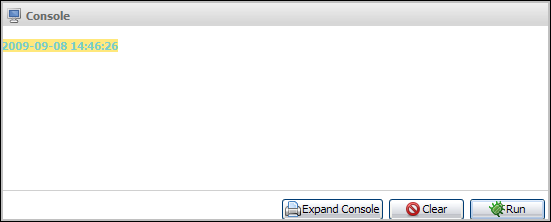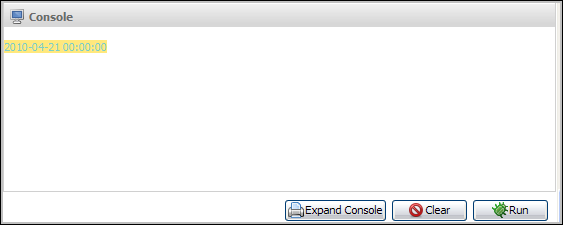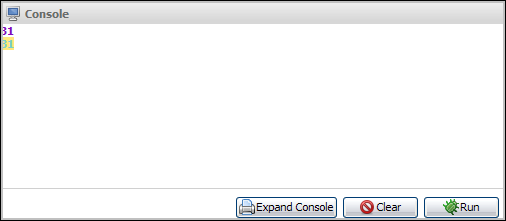Functions
Date functions are often used when evaluating and calculating quotes in Commerce. As an example, they are used to set quote expiration dates. Dates are always strings in Commerce, but can be converted to dates using the functions included in this article.
This function returns the date which is obtained after adding X number of days to a particular date. Example Use Case: Often used in Commerce to set the time a quote is valid, or when it expires.
Syntax: adddays(date, num_of_days)
Parameters:
| Parameter | Data Type | Description |
|---|---|---|
|
date |
Date | Represents the given date. |
|
num_of_days |
Integer | How many days you want to add to the given date. |
Return Type: Date
Example:
We will use multiple functions to accomplish the following:
- Add 60 days to the current date.
- Convert that date to a string format.
- Remove the
hours:minutes:secondsfrom the return.

This function returns the date which results after adding or subtracting a number of months from a specified date. This function is available in BML and Commerce Library functions. Example Use Case: Often used to set the expiration date for quote, assign end dates to contracts, or assign renewal dates for subscriptions.
Syntax: Date addmonths (Date date, Integer num_of_months)
Parameters:
| Parameter | Data Type | Description |
|---|---|---|
|
date |
Date | Represents the given date. |
|
num_of_months |
Integer | The number of months you want to add to the given month. A positive value will add months. A negative value will subtract months from the date specified. If this value is 0, the result returns the same date. |
Return Type: Date
Example:
return datetostr(addmonths(getdate(), 2));
This BML Date function takes into account the number of days in a month and leap year. If the date is at the end of a month, the date result will be a valid calendar day for the calendar year.
- January 31st + 1 month = February 28th (unless leap year then February 29th)
- February 28th + 1 month = March 28th
- August 31st + 3 months = Nov 30th
- Sept 28th + 1 month = October 28th
- Dec 15th - 3 months = September 15th
Use this function to compare two dates based on date and time.
Syntax: comparedates(Date date1, Date date2)
Parameters:
| Parameter | Data Type | Description |
|---|---|---|
|
date1 |
Date | Represents the given date. |
|
date2 |
Date | Represents another given date. |
Return Type: Integer
Example:
| If... | ...Returns |
|---|---|
| Both dates are equal | 0 |
| First date is before second date | -1 |
| First date is after second date | 1 |
This function converts a date to a string. It can take an optional parameter that can return a formatted string.
Example Use Case: Date fields in commerce are considered string fields, so to return a date to a commerce attribute you need to convert it to a string first.
Syntax: datetostr(Date date,[String dateFormat, [String timeZone]])
Parameters:
| Parameter | Data Type | Description |
|---|---|---|
|
date |
Date | Mandatory date parameter. |
|
[dateFormat] |
String | Optional: Returns a formatted string. |
|
[timeZone] |
String | Optional: Retrieve the data in another time zone. |
Return Type: String
| Valid Date Components | Description |
|---|---|
| yyyy | Year in long form specifying all digits |
| MM | Month in numeric format |
| dd | The day of the month in numeric form for example. 24 |
| HH | The hour as a number in 24 hour form |
| hh | The hour as a number in 12 hour form |
| mm | Minutes |
| ss | Seconds |
| a | AM/PM |
| z | General Time Zone |
| Z | RFC 822 Time Zone |
Examples :
-
Example 1:
testDate = strtojavadate("02/03/2010 03-22-55", "MM/dd/yyyy HH-mm-ss");
dateStr = datetostr(testDate, "yyyy-MM-dd HH:mm:ss")-
dateStrnow holds the string "2010-02-03 03:22:55" -
The date and time is stored in the server's time zone by default (For this example, assume GMT-8).
-
-
Example 2: Retrieve the data in another time zone, include the"timeZone" parameter as a string.
datestr = datetostr(testDate, "yyyy-MM-dd HH:mm:ss", "GMT-6")
-
datestrreturns "2010-02-03 01:22:55"
-
-
Example 3:
twelvehour = datetostr(testDate, "yyyy-MM-dd hh:mm:ss a", "GMT+4")
-
twelvehourwill return "2010-02-03 03:22:55 PM"
The function datetostr (getdate()) will return today's date in the format MM/dd/yyyy HH:mm:ss if no format is supplied -
This function returns the current time in milliseconds.
Syntax: Integer getcurrenttimeinmillis()
Return Type: Integer
This function returns the current date/time based on the base time zone you have set-up in your application. The function takes a parameter and returns a date, with or without time. Example Use Case: Find the current date.
Syntax: getdate([boolean includeTime])
Parameters:
| Parameter | Data Type | Description |
|---|---|---|
|
[includeTime] |
Boolean | Optional: Returns the current system date and time. If it is not included, it will be set to true by default. If this parameter is set to false, the component is set to 00:00:00 and is not displayed to the user. |
Return Type: Date
Example getdate:


Example getdate(false):


This function calculates the number of days between two different dates. Example Use Case: Check to see if a quote is expired.
Syntax: getdiffindays(date 1, date 2)
Parameters:
| Parameter | Data Type | Description |
|---|---|---|
|
date 1 |
Date | Mandatory date parameter. |
|
date 2 |
Date | Mandatory date parameter. |
Return Type: Float
Example:


strtojavadata() to change a Date from a string format to a date format.Returns the string representation of current date.
Syntax: String getstrdate()
Return Type: String
Using this function will determine whether the date falls within a leap year. The function will return true if the year provided as a parameter is a leap year.
Example Use Case: Can determine if the date entered by a user is a valid date; or can be used when trying to calculate the total number of days in a given year.
Syntax: isleap(year_num)
Parameters:
| Parameter | Data Type | Description |
|---|---|---|
|
year_num |
Integer | Four-digit integer that represents the year in question. |
Return Type: Boolean
Example:

Since the year 2008 was a leap year, the function returns True.
This function determines whether a date falls within a weekend (Saturday or Sunday). The function will return true if the date provided as a parameter is a Saturday or Sunday.
Example Use Case: Can determine if the date entered by a user is a valid date.
Syntax: isweekend(date)
Parameters:
| Parameter | Data Type | Description |
|---|---|---|
|
date |
Date | Mandatory date parameter. |
Return Type: Boolean
Example:

The console will return either True or False.
This function returns a date that is x days before the base date. Example Use Case: Can be used to set an expiration date of a quote.
Syntax: minusdays(date, num_of_days)
Parameters:
| Parameter | Data Type | Description |
|---|---|---|
|
date |
Date | Represents the given date. |
|
num_of_days |
Integer | How many days you want to subtract from the given date. |
Return Type: Date
Example:

This function is deprecated, and no longer supported. It converted data in String format to Date format.
Use strtojavadate() instead.
Syntax: strtodate(String str, String format [, String timeZone])
This function converts a string to a date and replicates Java behavior. Use this function instead of strtodate(), which is deprecated and no longer supported.
Syntax:: strtojavadate(String str, String format, [String timeZone])
Parameters:
| Parameter | Data Type | Description |
|---|---|---|
|
str |
String | String format of a date. |
|
format |
Date Format | Specifies the format the date will be returned in. |
|
timeZone |
String | Optional: Retrieve the data in another time zone. |
Return Type: Date
| Date Format | Date Type |
|---|---|
| yyyy | Year in long form specifying all digits |
| MM | Month in numeric format |
| dd | The day of the month in numeric form for example. 24 |
| HH | The hour as a number in 24 hour form |
| hh | The hour as a number in 12 hour form |
| mm | Minutes |
| ss | Seconds |
| a | AM/PM |
Examples:
-
Example 1: Convert to US Format
strtojavadate("02/12/2010", "MM/dd/yyyy")Returns a date object representing February 12th, 2010.
-
Example 2: Convert to European Format
strtojavadate("01/02/2010", "dd/MM/yyyy")
Returns a date object representing 01 February 2010.
-
Example 3: Convert to European Format with Paris, France time zone
parisdate = strtojavadate("01/02/2010 16:30:40", "dd/MM/yyyy HH:mm:ss", "Europe/Paris")
Returns a date object representing 01 February 2010 with a time zone in Paris France.
When the datetostr method is used, another time zone can be specified and will render with the appropriate time difference.
datetostr(parisdate, "dd/MM/yyyy HH:mm:ss", "America/Chicago")
Returns a date object with a Paris France time zone rendered into a Chicago time zone, "01/02/2010 09:30:40"
- The input date string should contain month, day, and year values. If these values are omitted the results may not be correct, i.e. an invalid date.
- The format strings supported are different from the ones supported by strtodate function.
Notes
- NULL and blank Integer values are treated as separate values:
- NULL= 0
- Blank = ""
- Using NULL as an attribute value is strongly discouraged.
- If you use logic that tests for NULL values in rule conditions or BML, confirm that the logic takes this difference into account.





